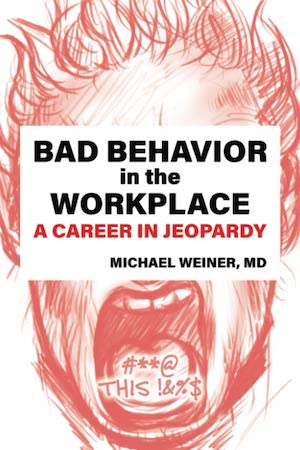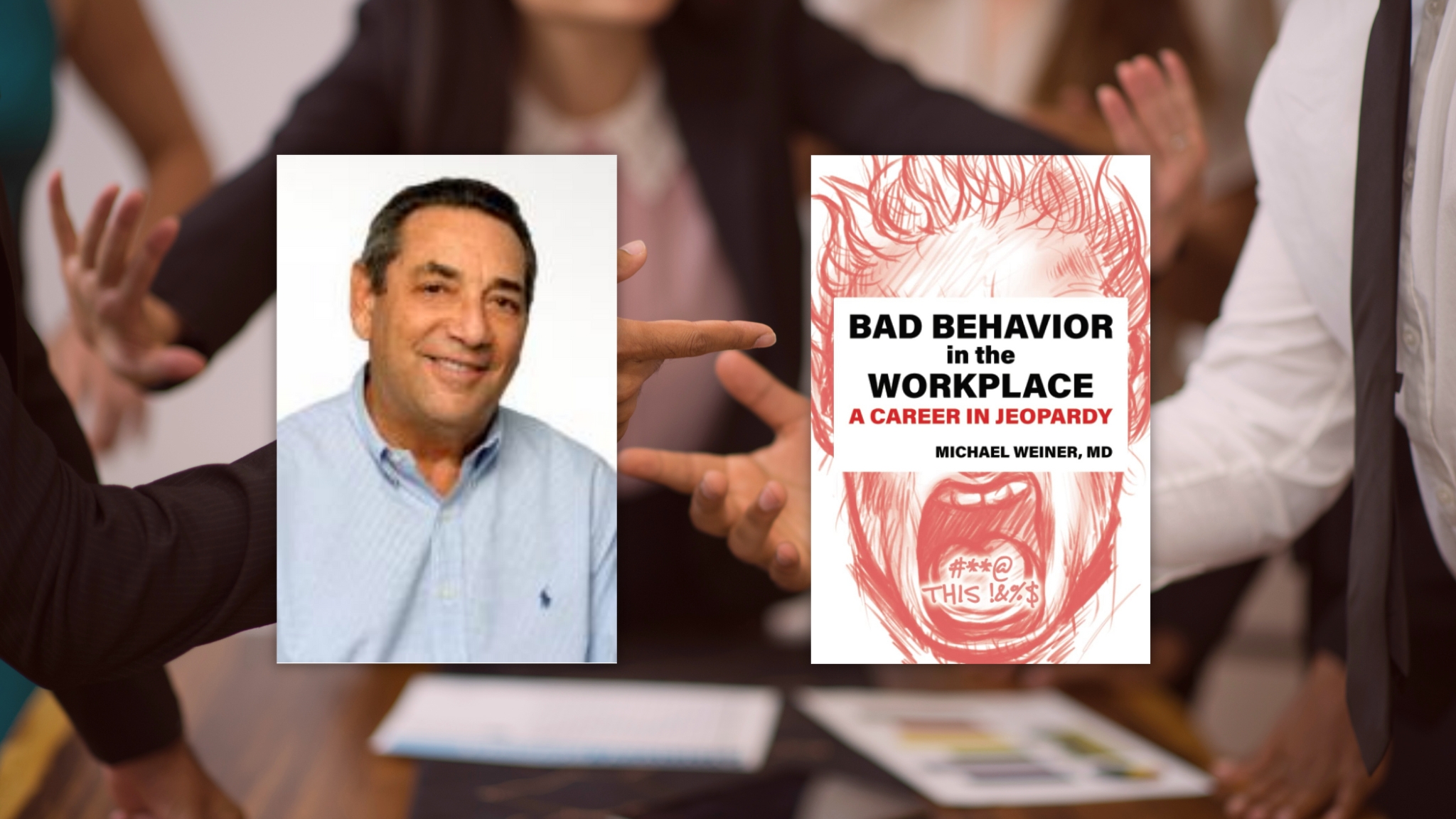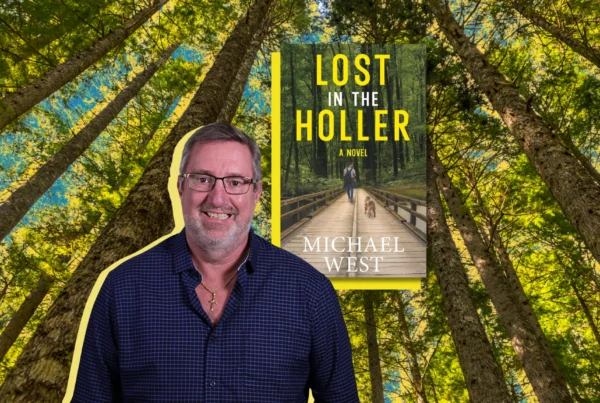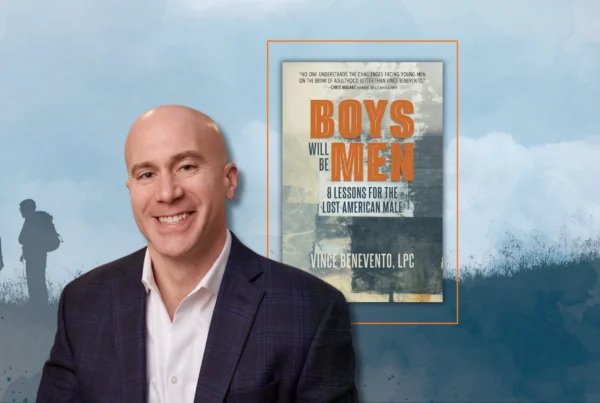F**k! Bad Behavior in the Workplace by Dr. Michael Weiner
An inappropriate and angry outburst at work put Dr. Michael Weiner’s career, reputation and marriage in jeopardy. It was at this point that the pediatric oncologist finally decided it was time to do something about it.
So began a deep research dive into the origins of anger and an attempt to understand what was behind Weiner’s own behavior. Eventually, his findings took the form of a fiction version of his real-life drama in the book, F**k! Bad Behavior in the Workplace (Atlantic Publishing). The book takes us through the trials of the fictitious Dr. Andrew Brown, who is confronting similar demons.
In this revealing Q&A, Dr. Weiner gives us an up-close look into his fascinating and liberating journey.
Q: Why did you write this book?
A: When I initially began researching this book, my curiosity regarding anger, and temper, was largely personal. I had been recently reprimanded by my institution following an unprofessional outburst in the workplace. It had not been the first time that my inability to regulate my anger had caused issues in my personal or work life, but the repercussions exceeded any that I had previously dealt with. I recognized that I needed to pursue immediate remediation and learn at last how to control my anger, for me, my family, friends and colleagues.
Q: Can you elaborate on the incident that happened to you at work that served to a large degree as the catalyst for this book?
A: The incident that prompted the downward spiral involved my frustration with an insurance company that denied a transfer and admission of a leukemic patient at another hospital. After spending more than an hour advocating for the patient and attempting to develop a plan, in a public room, I said, “F**k this shit.” My outburst apparently upset others and I was subsequently placed on administrative leave. This was a difficult period for me, both personally and professionally. I felt adrift and worried that the legacy I had worked to establish over the course of many decades might be overshadowed by these personal failings.
Q: Why did you write it as a fiction work even though you say in the opening that it reflects your own story?
A: I wrote the book as fiction because although some of the personal incidents are based on actual events, each one is expanded, fabricated, and fictionalized. Every character, every location, hospital, etc. is fictionalized. I thought it would be dishonest to present as non-fiction. Perhaps the best category would be historical fiction
Q: What was the most surprising point you uncovered about why people get angry?
A: I was curious about anger’s place in history and its manifestations in culture, art and literature, as well as in the workplace. I investigated the origins of anger and its role in our culture. Therefore, I devoted a chapter to a brief history of anger through recorded time. Additionally, I discussed the presence of an “anger gene” and the pros and cons of anger, temper, and rage. Ultimately, I hoped that my research would allow me to move into this next phase of my life in a more productive and receptive way.
Q: What was the most difficult part of the book to write?
A: Frankly, I found writing the book to be fluid, seamless, and easy experience. In my mind I knew where I was headed at every step. I knew what I wanted to write and the message to impart.
Q: What is the one piece of advice you would give to people who find themselves with similar issues?
A: Anger, temper, profanity and harassment are frequently encountered in the workplace. The gap between what one would consider to be egregious, bad behavior and what others would consider part of the everyday discourse, normal behavior is very small, narrow. Most institutions, large and small, whether they may be academic medical centers, corporate America or law firms, do not manage these issues with equipoise, fairness and due process. There needs to be consistency and process, honest discussion by all parties. I remain an advocate of privacy, protection, and absolutely no retribution levied against an accuser; however, the pendulum has swung too far and desperately needs a correction.
Q: What is the one biggest message you hope readers will take away from this book?
A: With Andrew Brown’s story, my hope is not necessarily to answer whether anger has positive effects or whether a genetic predisposition toward it exists, but rather to reach out to others who are similarly struggling. Through my main character, I hope to demonstrate that behavior modification is possible at any stage of life or career through hard work and perseverance. And, more so, I hope to show those who struggle with anger that they are not alone.


 Dr. Michael Weiner is a pediatric oncologist, philanthropist and author. He has been recognized and rewarded as the head of Pediatric Oncology and Vice Chair of the Department of Pediatrics at Columbia University Irving Medical Center, New York Presbyterian Hospital. He has made major significant contributions in the diagnosis and treatment of children and adolescents with leukemia and lymphoma and is nationally recognized as a leader in the field.
Dr. Michael Weiner is a pediatric oncologist, philanthropist and author. He has been recognized and rewarded as the head of Pediatric Oncology and Vice Chair of the Department of Pediatrics at Columbia University Irving Medical Center, New York Presbyterian Hospital. He has made major significant contributions in the diagnosis and treatment of children and adolescents with leukemia and lymphoma and is nationally recognized as a leader in the field.


